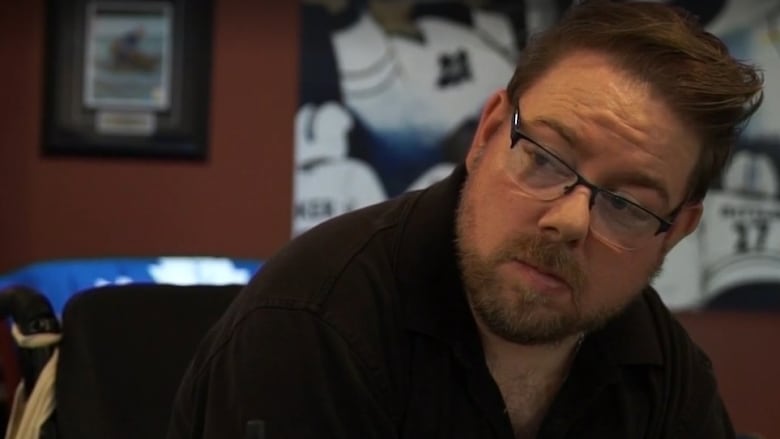Why it's funny/not funny that I have to jump through hoops to get medical equipment
If you're disabled, on income assistance and request medical gear, hurdles are 'almost comical': Alex Lytwyn

This First Person article is the experience of Alex Lytwyn, who lives with cerebral palsy and is a disability advocate, writer and small business owner of Willpower Media. For more information about CBC's First Person stories, please see this FAQ. You can read more First Person articles here.
For people who have mobility issues, it seems counterintuitive — and almost comical — that physically disabled citizens often have to jump through a lot of governmental hoops to access things that could improve their lives.
When a person who has a physical disability and is on income assistance needs a medical device, it is an extremely long process to get one. Any medical equipment you may need has to be requested through a branch of government called DHSU (disability and health supports unit).
That's not as easy as it sounds.
First, an OT (occupational therapist) has to meet with you and evaluate your need for the equipment.
Then, they have to make a report about how this piece of equipment will benefit your life and send it to the DHSU.
It's important to keep in mind that the person reviewing the equipment request has no real idea why or how this piece of equipment will enhance your life. I think they're concerned with how much it will cost.
After that, it can take months for the department to make a decision.
If the equipment request gets denied, it's damaging on multiple levels. It hurts because you do not get the much-needed equipment and it hurts because you know that life — instead of getting a little bit easier — will continue to remain difficult.
I have been denied what I consider life-improving equipment, because the person reviewing the file does not think it will be useful to me.
How the heck does that person have any idea about my life or the equipment?
For example, when I get a new power chair, it does not come with a backrest or seating. Both of these items need to be applied for through DHSU, which means I actually have to make a special request for them.
Naturally, my occupational therapist applies for the backrest and seating that is best for me and my posture habits. But if my application is denied, the only option for me is to get something that's not suitable for me or my posture, meaning the 12 to 13 hours a day that I spend in the power chair will be much, much more uncomfortable.
Clear and concise request writing is key when it comes to asking for medical equipment. The OT has to write a report that will make the person who's reading the request feel the need for the equipment.
Over the years, all my occupational therapists have been awesome. They go back and forth, often writing multiple reports for the same item. They have countless phone conversations with the provincial department, arguing on my behalf. This all takes a ton of time and a lot of back and forth.
Sometimes it works and sometimes it does not.
Now sure, there are times when the written word can go a long way in understanding a need. But when it comes to disabilities and medical equipment, seeing how the equipment would benefit the individual would help. This could be done in person or virtually. They need to see for themselves — first-hand — why this equipment is needed.
Living with a complex disability comes with enormous challenges. It's a shame that sometimes it feels like the government seems intent on adding to these challenges, instead of helping clear a path to a successful life.

